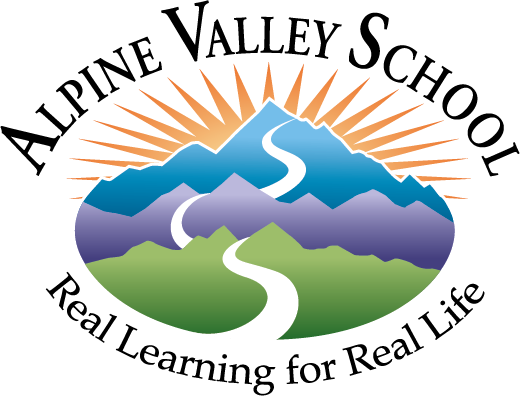The Important Stuff is Hard to Measure
When families come to Alpine Valley School for a tour, I often ask them what their ideal outcome is for their children - what do they want life to be like when they grow into adults? Almost always, parents tell me the same answer: They want their children to be happy. Sometimes they also add that they wish for success, self-confidence, or another quality that may be a little more undefined. Still, happiness is always, always at the top of the list.
All parents want their children to grow up to be happy adults who live fulfilling lives. And there are many different ways to achieve that end; there is no one right way. However, what is interesting to me in that equation is what role schooling has to play.
Most families send their kids to school to build skills for the future, acquire knowledge, learn how to get along with others, and prepare for adulthood. Children go about the business of becoming educated in mainstream schooling through sitting in a classroom, being taught a curriculum, and then repeating what you've learned onto a test. Outcomes are measured in hard data at all stages, whether the data be grades, test scores, or another kind of assessment. Mainstream education is all about hard data. What, then, of happiness?
Happiness is notably challenging to measure. Psychologists have been trying to quantify human happiness for years, mainly through a series of surveys regarding an individual's sense of well-being. But even then, the data is somewhat fuzzy. Contentment is quite a bit harder to pin down than, say, whether you got all the answers correct on a multiple-choice quiz. And yet, to most families, happiness is the more critical factor.
I've found it right in my own life that the most important things are often the most difficult to measure. Try as we might (and many institutions do), it isn't easy to measure friendship, trust, or love. It's hard to put in black and white the growth and emotional maturity that kids attain over time. How can one assign a grade to self-actualization?
The reality is that one cannot quantify all of these things. Ephemeral concepts defy measurement, and yet they remain the most crucial elements of all of our lives. Happiness is essential for children, not just in the future when they are grown, but in their lives at present. They must be allowed to explore what brings them joy, find what makes their lives meaningful, and spend time with the people who they enjoy free of the need to measure their progress. Only the child themselves can tell you if they are delighted or find satisfaction in their daily activities. We believe that they know best how to make adjustments.
The Alpine Valley School curriculum consists of knowing what makes one happy, what brings them fulfillment, and how to best go about pursuing those gifts. No one at our school attempts to measure these problems because it isn't possible, as I've indicated. Instead, we allow students to exist in a diverse community where they are responsible for themselves, and watch as they struggle, question, explore, and thrive. And while well-meaning adults may still crave benchmarks of these accomplishments, we all know that the most important aspects of life resist being measured.
